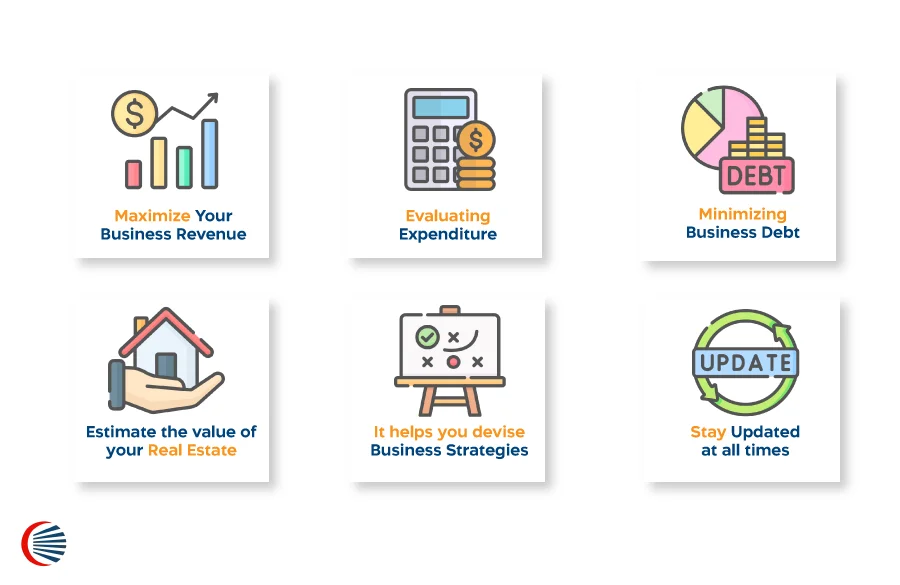The Importance of Financial Planning in Construction Accounting for Cost Control
The Importance of Financial Planning in Construction Accounting for Cost Control
Blog Article
The Trick Benefits of Implementing Building And Construction Audit Practices in Building And Construction & Property Firms
The implementation of construction accounting methods within building and genuine estate firms offers various advantages that can significantly enhance overall financial management and task end results. By establishing extensive budgeting and cost-tracking mechanisms, firms can attain higher precision in economic planning and cash money circulation management.
Enhanced Budget Control
In the realm of building accounting, efficient spending plan control is vital for job success. Improved spending plan control includes strenuous surveillance and management of financial resources throughout the task lifecycle. Precise budgeting ensures that prices are estimated reasonably, allowing companies to assign funds efficiently and alleviate the risk of overruns.
To attain enhanced budget plan control, construction companies should use comprehensive price tracking approaches, using innovative software application options that help with real-time information analysis. This consists of damaging down job prices into labor, products, and overhanging, enabling specific forecasting and modifications as required. Routine spending plan reviews and variation evaluation are vital in identifying inconsistencies in between projected and actual expenditures, which can educate prompt decision-making.
Moreover, clear communication amongst task stakeholders is essential for preserving financial technique. Developing a culture of responsibility makes sure that all group members are conscious of monetary restrictions and purposes. By fostering collaboration across departments, firms can boost their capacity to react to economic challenges proactively.

Improved Capital Monitoring

Reliable capital management is crucial for construction firms, as it directly impacts their ability to operate efficiently and meet job commitments. By using durable construction audit methods, companies can get a more clear photo of their monetary placement, enabling far better projecting and source allotment.
One of the main benefits of enhanced capital monitoring is the ability to prepare for periods of monetary stress. Building and construction projects typically include considerable upfront prices and changing earnings based on task milestones. With reliable tracking of income and expenditures, companies can identify potential cash money shortages and carry out techniques to mitigate them, such as safeguarding credit lines or readjusting repayment schedules with subcontractors.
In addition, timely invoicing and diligent follow-up on receivables can boost capital. By enhancing these processes, building and construction firms can ensure that funds are readily available when needed, sustaining recurring procedures and reducing the danger of hold-ups due to pay restraints. Exact cash flow projections make it possible for companies to make educated decisions pertaining to investments in new projects, devices, or personnel, fostering lasting growth and stability within the organization. Eventually, improved capital monitoring is important for keeping functional performance and making sure lasting success in the competitive construction market.
Raised Task Profitability
Making the most of job success is an essential goal for construction companies making every effort to boost their monetary performance. Executing effective construction audit techniques is crucial in achieving this objective. By accurately tracking project prices, companies can determine areas of overspending and implement corrective actions without delay. This aggressive technique permits much better budget management, ensuring that sources are assigned efficiently throughout the project lifecycle.
Additionally, thorough economic coverage and analysis provide insights right into earnings margins for different tasks. By examining these margins, firms can make informed choices on future bids, guaranteeing they pursue projects that straighten with their earnings objectives. In addition, building and construction accountancy methods facilitate better interaction among task stakeholders, promoting cooperation that can result in cost-saving advancements and enhanced project execution.
In addition, establishing a durable audit framework makes it possible for companies to accurately examine their efficiency versus sector benchmarks. This not discover this only helps in determining toughness yet additionally highlights weaknesses that need dealing with, allowing constant renovation. Inevitably, raised project profitability not only enhances a firm's monetary standing however likewise improves its affordable benefit in the construction and genuine estate market, leading the way for sustainable growth and success.
Streamlined Financial Processes
Structured economic processes are crucial for building companies intending to improve functional performance and accuracy in their audit practices. By applying standardized treatments and using specialized software program, companies can substantially lower the moment and initiative invested in financial management jobs. Automation of regular tasks, such as expense, invoicing, and payroll monitoring, lessens human error and ensures that i was reading this economic information is processed quickly.
Moreover, streamlined procedures promote much better cash circulation administration, a vital aspect for building and construction companies where job timelines and budgets can be uncertain. With real-time economic reporting, business can monitor their monetary health, enabling for swift changes to alleviate any capital concerns. This proactive strategy helps keep supplier partnerships and keeps jobs on schedule.
Incorporating construction accountancy techniques enables firms to combine different economic features, from budgeting to project costing, right into natural operations. This assimilation not only saves time however additionally promotes transparency and accountability among team participants. Ultimately, streamlined financial procedures add to a much more dexterous company, ready to respond to market changes and task needs while ensuring that monetary integrity stays undamaged.

Notified Decision-Making Insights
Informed decision-making is important for building firms browsing complicated job landscapes and varying market problems. By applying durable construction audit techniques, firms can utilize exact economic data to facilitate critical options. This data-driven strategy allows supervisors to assess project feasibility, allocate resources effectively, and forecast capital fluctuations with better precision.
Building audit offers insights into cost management, enabling companies to determine locations of overspending and carry out corrective actions without delay. For example, detailed spending plan tracking and variation evaluation can disclose inconsistencies between forecasted and actual expenses, notifying future job proposals and approaches. In addition, prompt financial coverage improves the ability to react to market modifications, ensuring that companies continue to be dexterous and competitive
Additionally, exact monetary understandings foster much better interaction with stakeholders, including useful reference investors and customers. Transparent monetary coverage develops trust and self-confidence, as stakeholders can see the firm's monetary health and job performance at a look. Ultimately, educated decision-making, backed by sound audit methods, equips building and construction firms to navigate challenges, exploit on opportunities, and drive lasting growth in a significantly competitive sector.
Final Thought
To conclude, the implementation of construction accountancy practices in building and property firms significantly improves financial management. By promoting enhanced budget control, enhancing capital monitoring, and increasing project earnings, these techniques add to structured financial processes and informed decision-making. The adoption of such approaches not only promotes liability amongst stakeholders yet also equips firms with the agility needed to navigate varying market problems, eventually leading to higher total success in task execution.
The application of building and construction bookkeeping methods within building and construction and actual estate firms provides many benefits that can considerably boost overall financial administration and task outcomes. Building tasks often include substantial upfront costs and changing earnings based on job turning points. Additionally, construction accountancy practices assist in better communication amongst task stakeholders, cultivating partnership that can lead to cost-saving technologies and boosted job execution.
Integrating construction audit methods enables firms to combine different financial functions, from budgeting to task costing, right into cohesive operations. Construction Accounting. In-depth budget plan monitoring and variation analysis can reveal disparities between predicted and real expenses, notifying future task quotes and techniques
Report this page